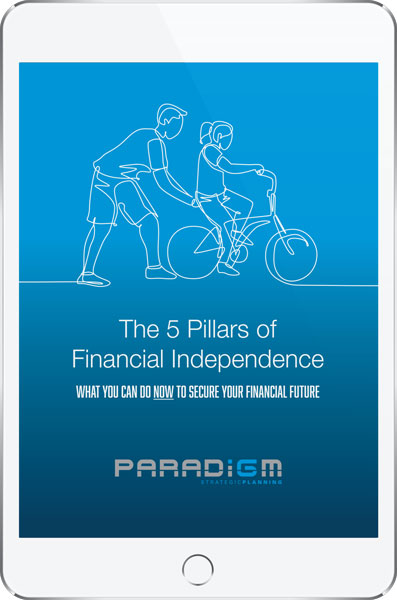The word “retirement” conjures up many images. While most baby boomers might be dreaming of more time on the golf course or booking a cruise, you might be thinking about buying a business. Crazy? Maybe not.
If you’re close to reaching your preservation age you will soon have access to your superannuation. An increasing number of people at this stage are taking control of their finances and buying themselves a new later-life career in the form of an established business.
Perhaps you’ve been retrenched and finding it difficult to land a new job. Or maybe, after a short period of retirement, you’re reinvigorated and ready to start afresh.
Seniors bring life experience and skills as well as a wide network of contacts to a commercial venture. But running a business doesn’t always go to plan. Small businesses are risky by nature, often have voracious appetites for capital and are usually vulnerable to irregular cash flow.
Assuming you satisfy superannuation conditions of release, consider these questions before leaping in with both feet:
How much capital will you need?
Will you be using your savings or relying totally on super? If using super, consider the risks associated with putting all your eggs in one basket. Do the sums and work out an appropriate
Will you buy a start-up or an existing business?
Starting from scratch means starting small, usually with a lot of unknowns ahead. Existing businesses come with customers, structures and processes. Regardless, your decision must be guided by how much you’re ready and able to put into building and maintaining your new venture.
Have you sought professional advice?
No really – you still need to think about retirement planning, tax, insurance, etc. Important any time, they’re fundamental when you’re self-employed.
Are you compliant with super regulations?
Self-managed Super Funds (SMSFs) exist to protect the future benefits of members. Therefore, all SMSF investments must meet Related Party regulations, meaning that you cannot use SMSF money to buy a business if you, or another fund member, intends to work in and derive an income from it. There could be other options available and this is where you need to seek specific advice
Retail or industry funds sometimes restrict lump-sum withdrawals. Access to and the tax applied to a lump sum withdrawal will depend on your age and the taxable components of your super. Your super fund can tell you how much in your account is taxable or tax-free.
Even though a lump sum withdrawal may be tax-free, if you use that money to earn income, that income will be taxed at your marginal tax rate.
If your business pays you an income, it’s imperative that you speak with your financial adviser about super as significant restrictions apply to contributions. These include an annual cap on concessional contributions of $25,000 (from 1/7/21 its $27,500). This will impact how much you can re-contribute to replace the amount you’ve withdrawn.
Access to super below age 60 is subject to strict withdrawal conditions. The desire to purchase a business is not one of them.
Will you know when it’s time to give up?
You probably don’t want to think about this, but the Australian Bureau of Statistics (ABS) figures indicate that 36% of small businesses fail in their first three years.
This is why conducting due diligence before purchasing an ongoing business is crucial. If things don’t turn out as planned, throwing good money after bad won’t help. Will you know when to quit? Do you have an exit plan?
What about your succession plan?
What will you do with the business when you finally retire? Sell? Pass it on to family? Plan for this final stage at the beginning.
—
Thanks to improved health and medical technology, Australians are living longer, which is why a sound strategy for such a big leap later in life is more important than ever. After all, if 60 is the new 40, then the story is not even close to finished!
If this is something you are considering, it’s worth speaking with a professional financial advisor. They will work through the numbers with you and give you their considered and unbiased advice.
More like this
 If you like this article, you might be interested to know that we share useful thoughts and information like this in our monthly financial insights email. You can subscribe to that email here. All subscribers receive a copy of our e-book: The 5 Key Pillars of Financial Independence.
If you like this article, you might be interested to know that we share useful thoughts and information like this in our monthly financial insights email. You can subscribe to that email here. All subscribers receive a copy of our e-book: The 5 Key Pillars of Financial Independence.
General Advice Disclaimer
This article contains general advice only, which has been prepared without taking into account the objectives, financial situation or needs of any person. You should, therefore, consider the appropriateness of the information in light of your own objectives, financial situation or needs and read all relevant Product Disclosure Statements before acting on the information. Whilst every care has been taken to ensure the accuracy of the material, Paradigm Strategic Planning or Sentry Advice Pty Ltd will not bear responsibility or liability for any action taken by any person, persons or organisation on the purported basis of information contained herein. Without limiting the generality of the foregoing, no person, persons or organisation should invest monies or take action on reliance of the material contained herein but instead should satisfy themselves independently of the appropriateness of such action.
Paradigm Strategic Planning Pty Ltd is an Authorised Representative of Sentry Advice Pty Ltd AFSL 227748
